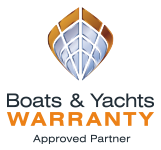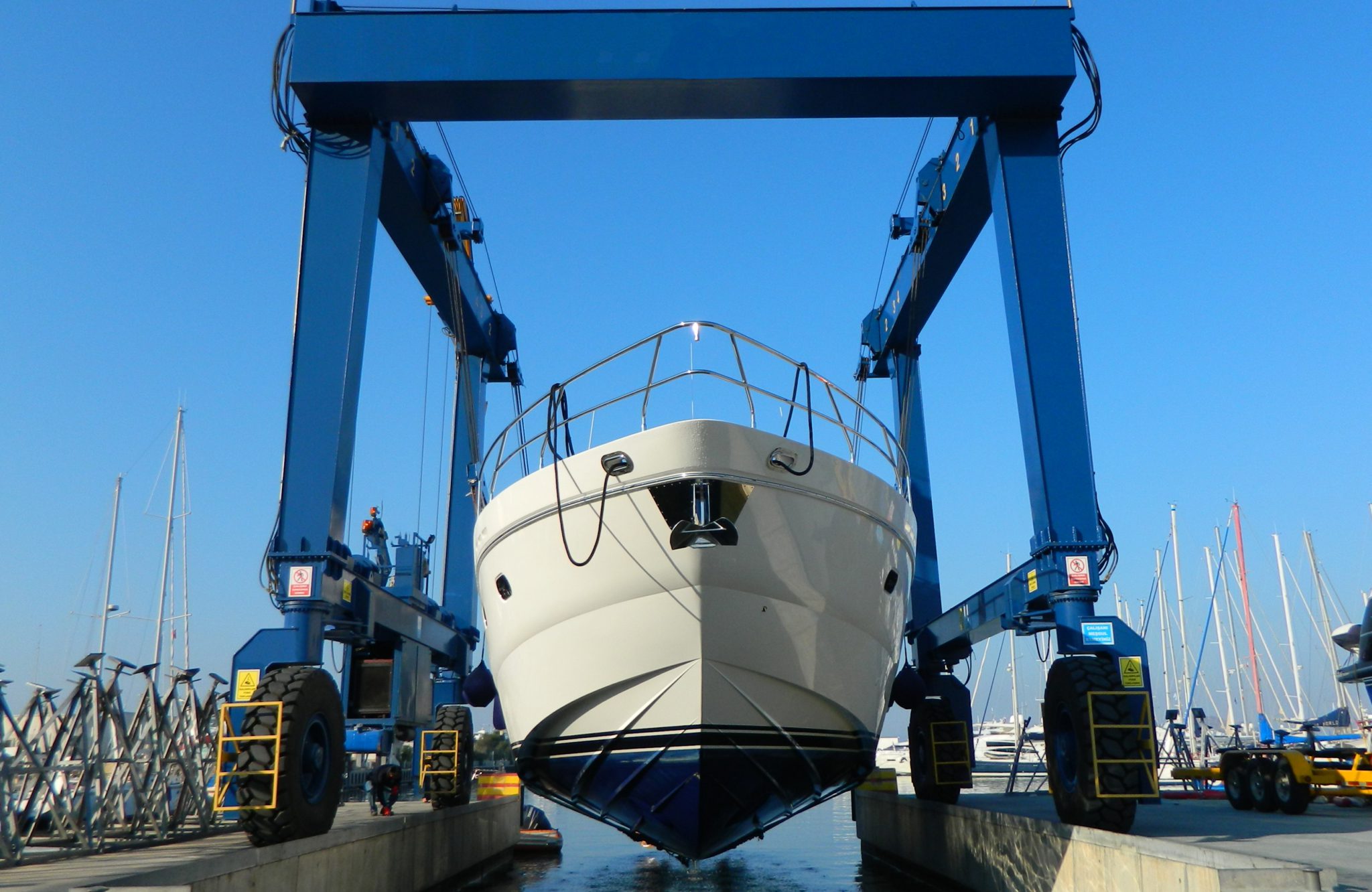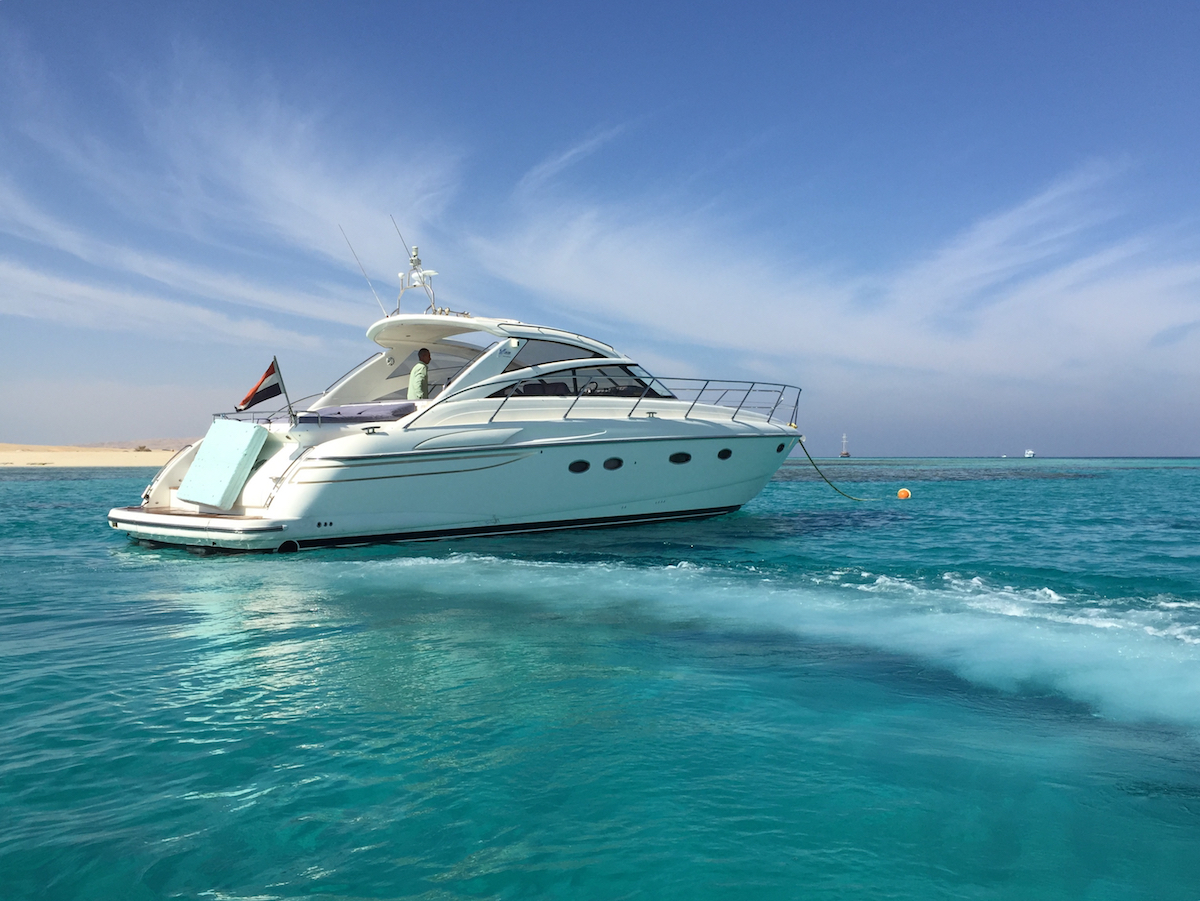In this section, you’ll find the information you need when purchasing the boat you have selected to buy. This includes the surveys you’ll need to conduct, insurance, mooring and storage considerations as well as finance options.
- Do I need to get a survey done on the boat I’m buying?
- What happens if the survey uncovers problems with the boat I’m buying?
- What type of boat surveys are there?
- If the boat already has an existing survey, do I still need to get one?
- What is boat insurance?
- Do I have to have boat insurance?
- What does boat insurance cover?
- What isn’t covered by boat insurance?
- What is boat warranty?
- Do I need a boat warranty?
- Warranties for new and used boats
- Mooring and storage solutions
- Finance
- Refinancing
Andy Whillier, from Clipper Marine, discusses researching a new boat purchase. Find out:
- the most important considerations when buying a boat
- the best way to search for a new boat
- what a sale and purchase contract is
Do I need to get a survey done on the boat I’m buying?
As mentioned in chapter two, when buying a boat you may need to hire a surveyor to conduct a survey or two on the boat either before purchasing the boat or during. When you’re in the process of buying a boat, the idea of spending even more money on surveys might not sound desirable however it can certainly save you a lot of hassle and cost in the future.
A quality survey can provide peace of mind when it comes to purchasing a boat – after all, it’s not a small purchase! A survey can provide you with the protection you need to ensure all important elements are in place before you buy and that you have everything you need for the boats long-term maintenance.
When hiring someone to conduct a survey for you, make sure that they are a specialist in that area and have extensive experience with the type of boat you are purchasing. A qualified surveyor will have Professional Indemnity Insurance, so it is worth checking that they have this or can provide evidence of this.
Once the survey has been completed, make sure to go through it with your surveyor and make sure you have a good understanding of the contents. If you have any queries about the report, make sure to flag them there and then.
Your survey can be used to help negotiate a better deal – and often provides a list of items for you to have to hand when it comes to bartering costs and securing the boat for a price that means you have room in the budget to attend to the items on the list that the survey has brought to light.
What happens if the survey uncovers problems with the boat I’m buying?
This is exactly why getting a survey is such a good idea. If the survey you pay for uncovers problems with the boat you’re buying, it enables you to lower your offer, it helps you negotiate any work you want to be done before finalising the purchase or it may even help you decide to walk away from the purchase altogether.
What type of boat surveys are there?
There are several surveys you can undertake on a boat you’re looking to purchase or are in the process of buying. Some of these are detailed below;
Pre-purchase Survey – This is the survey required by Promarine Finance, this is a thorough and comprehensive survey that looks at every detail of the boat from cosmetic details through to structure, build and safety. The pre-purchase survey looks at the hull out of the water, propulsive equipment, mechanical gear and all of the critical components that make up the boat.
Insurance Survey – Your insurer may request that you have an insurance survey conducted on the boat to assess the risks of potential cover.
Hull Survey – the surveyor will only examine the hull, this excludes engine, gas and electric installations.
In Water Survey – this really only covers the internal fixtures, fittings, and should include the Boat Safety Scheme requirements.
Engine Survey (Report) – usually carried out as part of one of the above surveys and conducted by an authorised agent or dealer of the engine manufacturer. It should include an oil analysis report and full diagnostic report.
If the boat already has an existing survey, do I still need to get one done?
The answer is yes. We don’t recommend that you rely on the results of an existing survey. It’s better to have the peace of mind that you’ve chosen a trusted and qualified surveyor to conduct an independent survey for your needs. Your survey will show the results of the condition of the boat on the day the survey was carried out so that you know it is the most up to date report available.
In certain circumstances, we will allow the existing survey to be rewritten by the surveyor (if they consent to do this) addressing it to you and so transferring all benefits from the original survey. One such circumstance could be where a broker has commissioned a recent survey to help sell the boat and the boat has not moved since the survey was completed.
What is boat insurance?
Having boat insurance protects your boat, other boats and your passengers from damage, injury or fatality. It can include cover against financial loss due to damage to your boat and it can assist in the case of a third-party claim against you.
Boat insurance comes with many levels to choose from including wide-ranging cover and third-party liability. You will need to do thorough research into what each level does or doesn’t include.
Do I have to have boat insurance?
It isn’t a legal requirement on waterways in the UK however it is a risk not to have it.
Sometimes you may require boat insurance as part of your finance agreement or mooring and/or storage arrangement.
Use our Boat Finance Calculator
What does boat insurance cover?
Boat insurance covers physical damage to your boat including the hull, equipment, machinery, furnishings and more. Different levels of cover will protect different items, so it will depend on how extensive you want the cover to be. Make sure to check each level thoroughly so that you are clear on what is or is not covered by your chosen policy.
As standard, most policies include accidental damage (such as fire, theft, sinking and collisions), damage to the engine, damage whilst in transportation, damage during launching, damage by weather (such as frost), personal item cover and more.
If you intend to allow other people to have use of the boat, you will need to make sure that they are covered under your policy also.
Other considerations include your sailing limits and cruising range and seasonal cover.
What isn’t covered by boat insurance?
Usually, boat insurance doesn’t cover damage that is inflicted deliberately or by being reckless, nor does it cover wear and tear. Most policies exclude cover on osmosis. It is worth checking your policy carefully so that you have a clear idea on what is not covered.
Compare insurance policies and options
It’s a good idea to shop around and compare different insurance offerings and quotes before settling on your boat insurance policy. Take your time and do your research to make sure it covers everything you need it to.
What is boat warranty?
You can protect yourself from costly repairs on both new and pre-owned boats through having a warranty.

Boats and Yachts Warranty can cover almost any craft including pleasure, commercial and charter crafts provided during the period your craft is permanently registered to you and its engines have less than 10,001 hours of usage or, where engine hours cannot be reliably recorded, are less than 15 years old. Having a Warranty Plan in place will provide an essential investment.
Paul Finney, from Boats and Yachts Warranty, gives us an introduction to warranties. Find out:
- how warranties work for used boats
- what isn’t covered by warranties
- about extended warranty periods
Do I need a boat warranty?
Your boat is likely to be one of the largest investments you’ll make in your life. Every year 1,000’s of owners are left unprotected when their boat or yacht manufacturer’s warranty expires leaving them vulnerable to huge repair bills. Modern boats are complex and can be expensive to fix if they go wrong, the high labour charges alone can be crippling.
Warranty for Used and New Boats
Most new boats and yachts are backed with a hull and engine warranty for 1 or 2 years; Extended Warranty Plans will prolong the coverage of your engine and systems for up to 20 years. Pre-owned boats, on the other hand, are generally sold “as is”. Having an extended Warranty Plan in place can add a layer of protection to your purchase and lets you buy a pre-owned boat with peace of mind.
Although boating is fun, it takes place in an environment that is hard on your craft. A salty atmosphere, rough seas, heavy engine loads and pressures etc. can all take their toll on your craft, the engines, and its components. Having a Warranty Plan in place will provide an essential investment.
You can protect yourself from costly repairs on both new and pre-owned boats through our partner Boats & Yachts Warranty.
Boats and Yachts Warranty can cover almost any craft including pleasure, commercial and charter crafts provided during the period your craft is permanently registered to you and its engines have less than 10,001 hours of usage or, where engine hours cannot be reliably recorded, are less than 15 years old.
Use their quick quote calculator to obtain a warranty quote
Paul Finney, from Boats and Yachts Warranty, provides an understanding of boat warranties. Find out:
- how to get a quote
- the claims process
- how long claims take to process
- how renewals work
Mooring and Storage Solutions
Whilst buying a boat is an exciting time, it’s important to remember to put everything in place ready for when you become the boat owner – this includes mooring and storage solutions.
There are a number of mooring and storage solutions available to you, it’s about finding the best fit for you and your needs.
Sometimes when purchasing a boat second-hand, the mooring or berth comes with the boat – so it’s worth checking that it is suitable for your needs.
Keeping your boat at home – When a boat is small enough to trailer, usually a car is suitable to successfully transport your boat to and from the water. Keeping your boat at home means that you have no cost when it comes to storage.
Note: It’s worth envisioning where the boat will stay, whether it’ll be kept inside a lockable garage or it will be sitting on your drive. Here you may want to consider weatherproof covers and other security features.
Keeping your boat abroad – If you have decided to store your boat abroad you will need to source a professionally managed marina. You’ll ideally want a marina that you’re able to communicate with effectively and that is easily accessible from a local airport so that it is easy for you to travel to and from your boat.
If you’re considering storing your boat abroad you’ll need to check local legislation and the associated costs with mooring your boat overseas.
Keeping your boat in a Dry Stack – Whilst this has fast become one of the most popular solutions for boat storage – guaranteeing a ream of benefits and offering an efficient and easy solution – you will need to make sure that you do your research before choosing a Dry Stack and check that it’s adequately staffed so that there are no delays when it comes to the launch and recovery of your boat – especially at peak times in the season.
Keeping your boat at a full-service marina – Whilst this is most likely the easiest option, with the best facilities and round the clock support, it can also be costly. Do your research, compare prices and visit the marina in question ahead of settling on choosing it as your place to store or moor your boat.

Finance
Arranging finance for your new boat has never been easier. At Promarine Finance, you can complete an online application or call us to talk it through at any stage.
We offer flexible finance solutions that can be used to assist in buying a new or used boat. As mentioned in the chapters previous to this, you will need to get the boat checked by a surveyor to satisfy yourself that the boat is in good condition and has been well maintained.
It is a requirement of our marine mortgages that you insure the boat comprehensively and notify your insurers of our interest. We may request a copy of your policy.
Using our boat calculator, you can get a quote for your finance needs. If you’re happy with the quote you can then complete an online application with us – something that is easy and has a fast turnaround.
The first step is for us to conduct soft credit checks to check certain information on your credit report. These do not have an impact on future credit applications you might make and are not visible to other companies, they are simply to get a gauge of your financial health before processing the application for boat finance.
You can take a look at the process we take here.
Refinancing
If you already own a boat, you can take a look at our refinancing options. You can find full details here
Continue reading

Other things to consider when buying your boat
In this section, you’ll find all of the other considerations you may need to think about when buying a boat. These include the process of buying a boat abroad, buying…

Boat Buyer’s Guide Video Library
Welcome to the boat buyer’s guide video library. Below you can choose the category you’d like to skip to, each including some brilliant insights from a range of leaders in…

